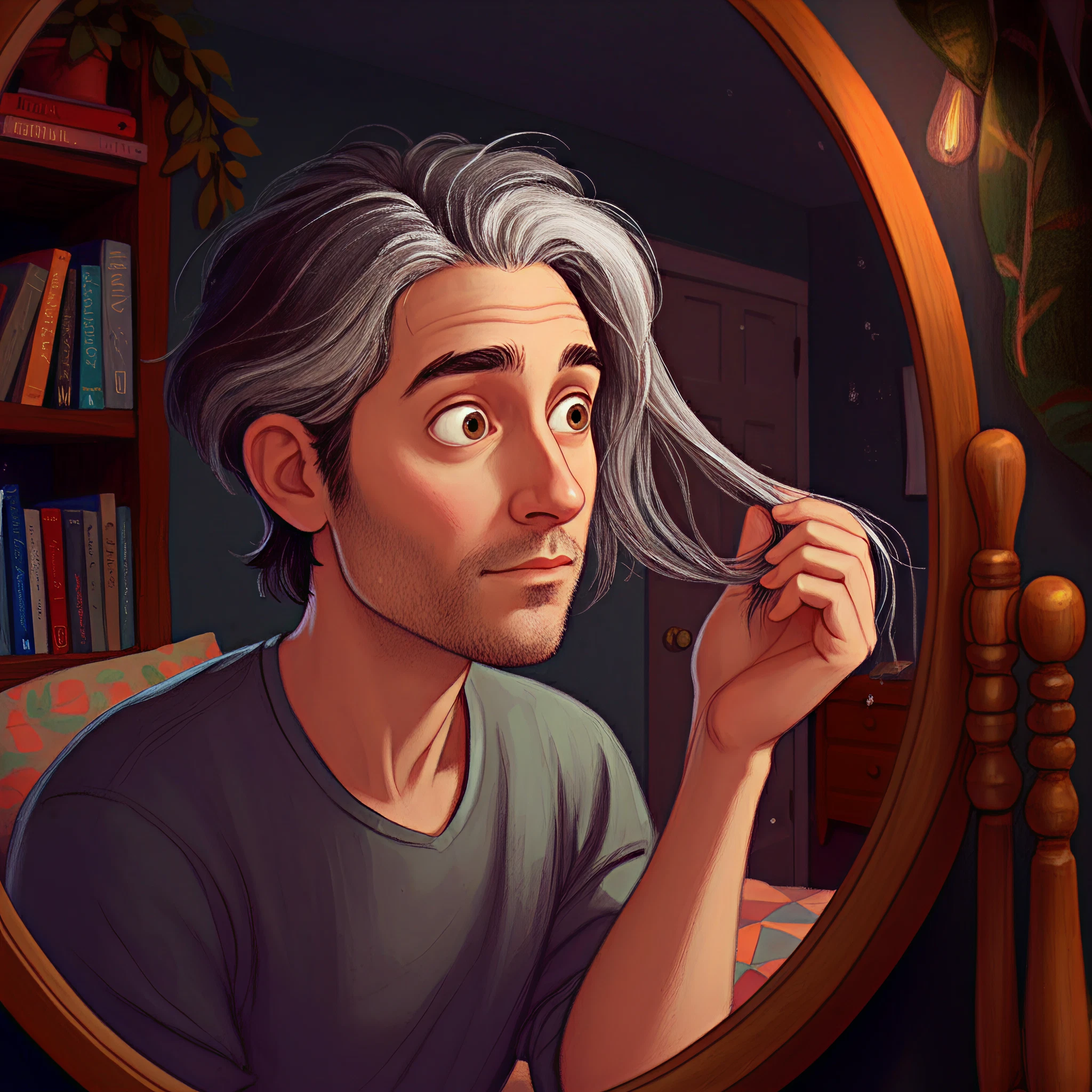Noticing gray hair in your early 20s can feel surprising, maybe even a little concerning. But you’re not alone. It’s more common than you think, and it’s not always about aging. A variety of factors, from genetics to lifestyle and health, can contribute to early graying. Let’s break it all down and understand why this might be happening to you.
What Causes Gray Hair at 20?
1. Genetics
Your genes are the most significant factor in determining when gray hair starts to appear. If one or both of your parents began graying young, chances are, you might too. Genetics often sets the timeline for when your body starts to produce less melanin, the pigment responsible for hair color.
2. Stress
Ever heard people say stress turns your hair gray? There’s some truth to it. Studies suggest that prolonged stress can contribute to premature graying by depleting stem cells responsible for pigment production. This doesn’t mean one stressful day will sprout a bunch of grays, but chronic stress could accelerate the process.
3. Vitamin and Mineral Deficiencies
A lack of certain nutrients, such as Vitamin B12, zinc, iron, and copper, can interfere with melanin production and lead to gray strands. For vegetarians or individuals with low nutrient absorption, this might be an area to explore.
4. Health Conditions
Underlying health conditions, such as alopecia areata or vitiligo, can cause premature or patchy gray hair. These conditions impact pigment development or destroy melanin in the hair.
5. Smoking
Smoking has a direct link to premature aging, including graying. The nicotine and other chemicals in cigarettes damage hair follicles, reduce melanin, and speed up the graying process.
6. Environmental and Lifestyle Factors
Exposure to UV radiation and harsh chemicals from hairstyling products can damage your hair follicles over time. Heat styling, dyes, and other treatments can deplete pigments and contribute to graying.
How to Manage or Prevent Gray Hair in Your 20s
If you’re wondering, “What can I do about my gray hair?”, here are some actionable steps to consider:
1. Focus on Nutrition
- Include foods high in Vitamin B12 (like fish, eggs, and dairy), iron, zinc, and copper.
- Consider taking a B-complex supplement if your diet lacks these nutrients.
- Ensure you’re getting enough protein, as it’s crucial for healthy hair.
2. Minimize Stress
- Practice stress-relieving activities like meditation, yoga, deep breathing, or journaling.
- Set healthy boundaries in your personal and professional life to tackle chronic stress.
3. Quit Smoking
If you need another reason to ditch cigarettes, this is it. Quitting smoking can improve overall hair and skin health.
4. Protect Your Hair
- Use heat tools (irons, dryers, etc.) sparingly and always add a heat protectant spray.
- Opt for chemical-free hair care products to minimize damage.
- Protect your scalp and hair from prolonged sun exposure by wearing hats or using UV-protective sprays.
5. Consider Hair Color Options
If you prefer to cover up grays, a variety of chemical and natural hair dyes are available. Make sure to patch-test for allergies before applying. Alternatively, you may choose to own your silver strands as a trendy style statement!
6. Consult a Specialist
If you suspect an underlying health issue or have concerns, consult a dermatologist or trichologist. They can evaluate your hair health and suggest medical or dietary interventions.
Is It Normal to Have Gray Hair at 20?
Yes, it’s entirely normal (though uncommon) to have gray hair in your 20s. Depending on your ethnicity, the threshold for what’s considered premature gray hair varies:
- White individuals may experience premature graying before age 20.
- For Asians, it’s typically before 25, while for Black individuals, it’s before 30.
While gray hair might not always feel great when you’re young, it doesn’t necessarily point to a serious problem. Sometimes, it’s simply your genetic blueprint or lifestyle factors at play.
How to Approach Premature Gray Hair Positively
Instead of worrying about a few gray strands, focus on maintaining the overall health of your hair. And remember, gray hair is no longer seen as a sign of “aging” but as a unique style statement embraced by many people of all ages. From silver balayage to trending hashtags like #GrayHairDontCare, the stigma around gray hair is fading.
Final Thoughts
If you’ve been asking yourself, “Why do I have gray hair at 20?”, now you know the common causes and actionable steps you can take. Focus on healthy habits, stay informed, and don’t hesitate to consult a professional if needed.
Gray hair isn’t a flaw; it’s part of the beautiful individuality of being human. Whether you choose to color it or flaunt it proudly, the choice is yours.
Want more tips on hair wellness and styling? Stay tuned or subscribe to our newsletter for the latest expert advice!
If requested, I can also guide you on the most effective ways to generate images for this article, such as through AI tools like DALL-E or Canva.








